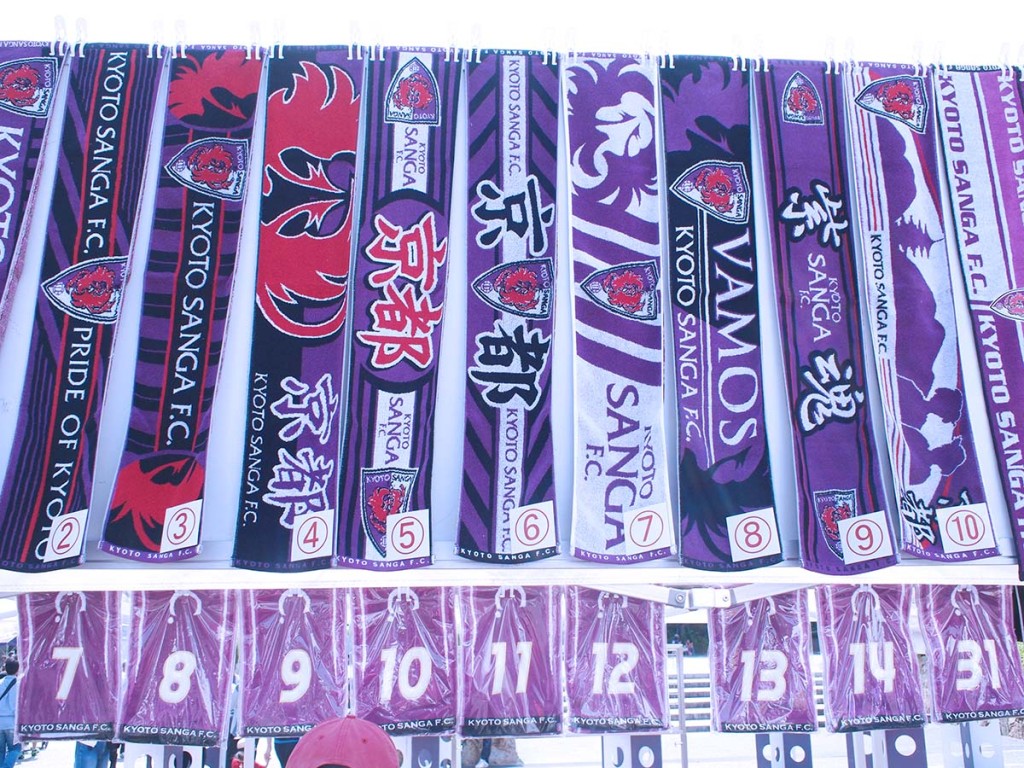My message to Sanga fans
The business philosophy secrets of a J League football club president
A special interview with Kyoto Sanga FC club president, Mr Hiroshi Imai
Kyoto Sanga FC has a history that any fan would be proud of. In 2003, they became the first J League team in Kansai (west Japan) to lift the prestigious Emperor’s cup in the National Stadium
after destroying the Kashima Antlers. Sanga was also the club where Manchester United great, Park Ji-sung, spent the beginning of his professional career.
Having just celebrated their twentieth year since becoming established as a club, they are currently fighting hard in J2, the second division of the Japanese League. They have produced several members of the Japanese national squad. Not only from the youth team, but also senior team members during the reign of previous manager, Alberto Zaccheroni (2010-2014). In addition, the club is attracting attention from around the world and sending out its players to play internationally, including the likes of top team player Yuya Kubo who is currently at Switzerland’s BSC Young Boys in the Swiss Super League.
Footy Weekends was honoured to spend time with the president of this club, Mr Hiroshi Imai, and ask him a few questions about the building of a new and much longed for stadium (due to be completed in 2017 in north Kyoto), the community-mindedness and essence of the club, as well as what he considers to be the charm of the beautiful game.
In the first part of the interview, Mr Imai gives us a personal insight into his knowledge of the industry with regards to creating a home for the club and building a new stadium. He then shares with us his fascination of the similarities he has discovered over the years between the workings of a football club and that of any other business.
Introduction
2003年元日に行われた天皇杯決勝戦において強豪・鹿島アントラーズを破り、当時在関西のJリーグのクラブチームの中で最初に賜杯を国立競技場で掲げ、そしてマンチェスターユナイテッドで活躍したパクチソン元選手を輩出するなど、ファンにとって自慢したくなる歴史を持つ京都サンガF.C.。クラブ設立20周年を迎えた今年、今はJ2で奮闘中ながら、年代別日本代表選手の輩出や、ザッケローニ前日本代表監督時代にA代表にも選出され、サンガユース出身で現在はスイス・ヤングボーイズへ2013年にトップチームから移籍した久保裕也選手など、育成型クラブとして実績を積み、ファンが待ち望んでいる新スタジアムへの期待も高まる中、クラブの経営を支える今井浩志社長に、経営者ならではの目線で新スタジアムへの思いや、フットボールの魅力、地域貢献、今後の目標などについて話を伺いました。
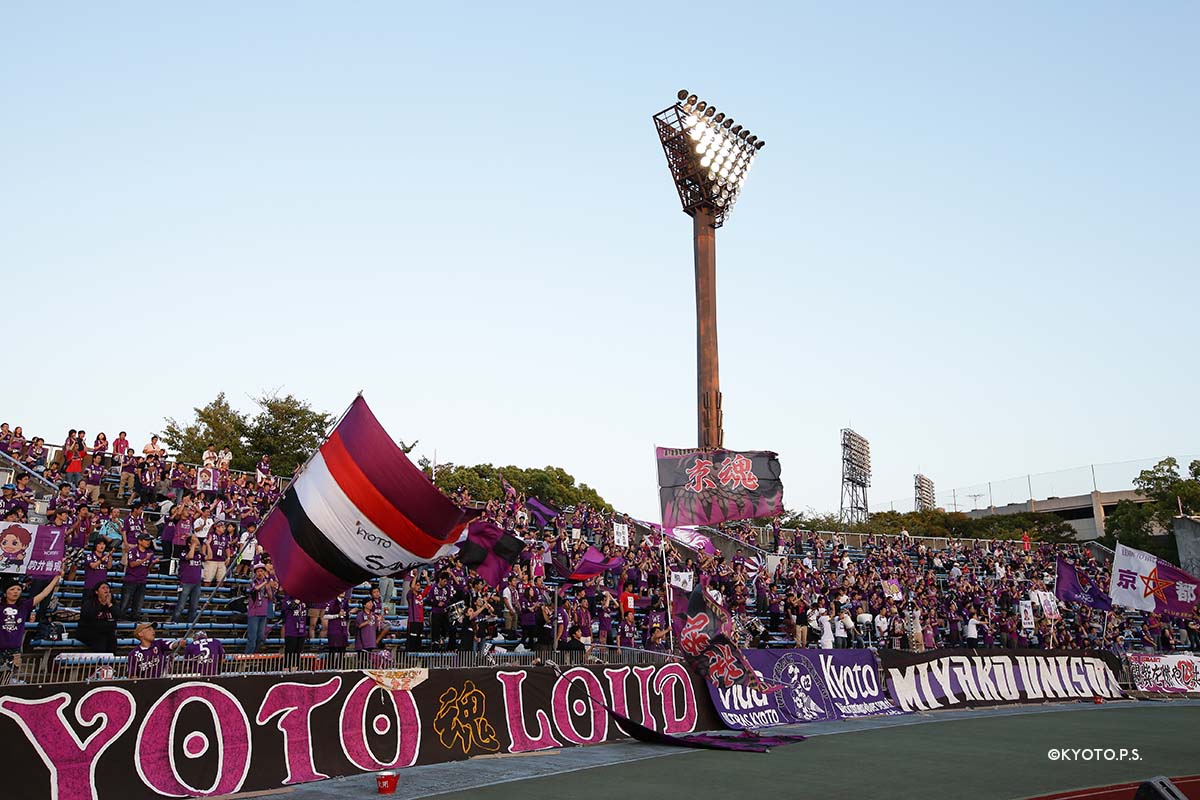
“It will be a symbol of all that is Kyoto.”
FW: What are your thoughts on the new stadium?
HI: It will not simply be just another sports facility. We are designing it deliberately so that it will become an asset to Kyoto’s well established tourism industry, and connect with the existing development of the area. The concept is clear, it will be Japan’s first stadium where the players will be close to the spectators (minus the usual running track that is prevalent at many stadiums around the country), and an environmentally friendly stadium. Most of all, there is great hope that it will become a great symbol of Kyoto that people here will be proud of.
“We want to give football fans, and any sports fans for that matter, a new kind of spectator experience in Japan when they visit it.”
HI: Build a good stadium, and good games will come. We want to build an environment for the football fans in Kyoto where they can watch a great game, live. A good stadium, with good facilities, will naturally draw in good teams and quality games. We want the children who live here and have only ever watched football games on TV, to be able to watch an exciting and inspiring game live. To have them feel close to the action and excited about it, would be a very happy moment for us.
“Create a home ground feeling.”
FW: You have sampled many of the stadium offerings to be found in Europe, and you mentioned that you would like to give Kyoto fans a strong feeling that this is their home ground, that the stadium belongs to them.
HI: To do that, it can’t be just about having games going on in the ground. In terms of being a spectator, it is absolutely necessary to make an atmosphere where they can directly feel the presence of the club in the place that they play. English clubs have their own stadiums. Chelsea’s Stamford Bridge for instance, is completely decked out in blue, and the club’s emblem is displayed throughout the ground. The club’s presence is so ingrained into the premises.Then if you take the likes of Dutch stadiums for example, these, like Japan are government built and owned. For example Ajax who uses the Amsterdam Arena. This has become the symbol of the town. You can feel that the whole city is supporting the club. You can feel the full extent of the support of the people and the presence of the club there. In regards to this, the public stadiums built in Japan by Japanese tax payers money, where the professional games often take place, it is very difficult to give the stadiums the feeling of the club, in the same manner as in England and Europe (due to the rules and regulations involved in using a publicly owned facility). So it is the hope of the club to be able to give our fans this feeling of having their very own home ground, and it is this that has been proposed in the plans.
Q1:新スタジアムへの思いとは?
"京都のシンボルへ"
「単なるスポーツ施設ではなく、京都の観光振興や地域の発展に繋がることを意識したものを目指し、”日本一、選手に近いスタジアム”や“日本一、エコなスタジアム”といったコンセプトが明確なものにし、京都が誇るシンボルとなるようなスタジアムを目指して欲しいですね。」
"京都のフットボールファン、スポーツファンにカルチャーショックを"
「いいスタジアムが出来ると、いい試合が生まれます。京都のフットボールファンの方たちに、地元で、生で素晴らしい試合を観ることが出来る環境を作ることで、今までテレビで試合を観ていた子どもたちにも、実際のスタジアムへ観ることができ、フットボールをより身近に感じてもらえると嬉しいです。」
"「ホームスタジアム」という感覚の違い"
「ヨーロッパのいろいろなスタジアムを視察してきてきました。京都のファンの人たちが、ここは私達のホームスタジアムだと強く感じてもらえるような場となってもらうためには、ただそこで試合をやっているということだけではなく、視覚的にもクラブの存在を直接感じられる雰囲気作りが必要となってくるのではないでしょうか。」
「イギリスのクラブチームは自前でスタジアムを所有していますが、チェルシーのスタンフォードブリッジなら青色で染められていたり、クラブのエンブレムがあちこちに掲げられていたりと、クラブの雰囲気が溶けこんでいます。」
「また、オランダにあるスタジアムなどは、日本のように行政が造り所有していますが、そのうちのひとつ、アヤックスのホームスタジアムであるアムステルダム・アレナは、クラブを街の象徴としてアムステルダム市が全面的にクラブをサポートをしているのでホームスタジアムの雰囲気を存分に感じることが出来ます。対して日本は、税金で建てられた公共の物という意識があるために、プロの試合が多く開催されても特定のクラブの雰囲気を表現することが難しいです。我々としては新しいスタジアムはファンの皆さんにとって本当のホームグラウンドになって欲しいので、スタジアムを建設される行政の方々にはそういったことを提案しています。」
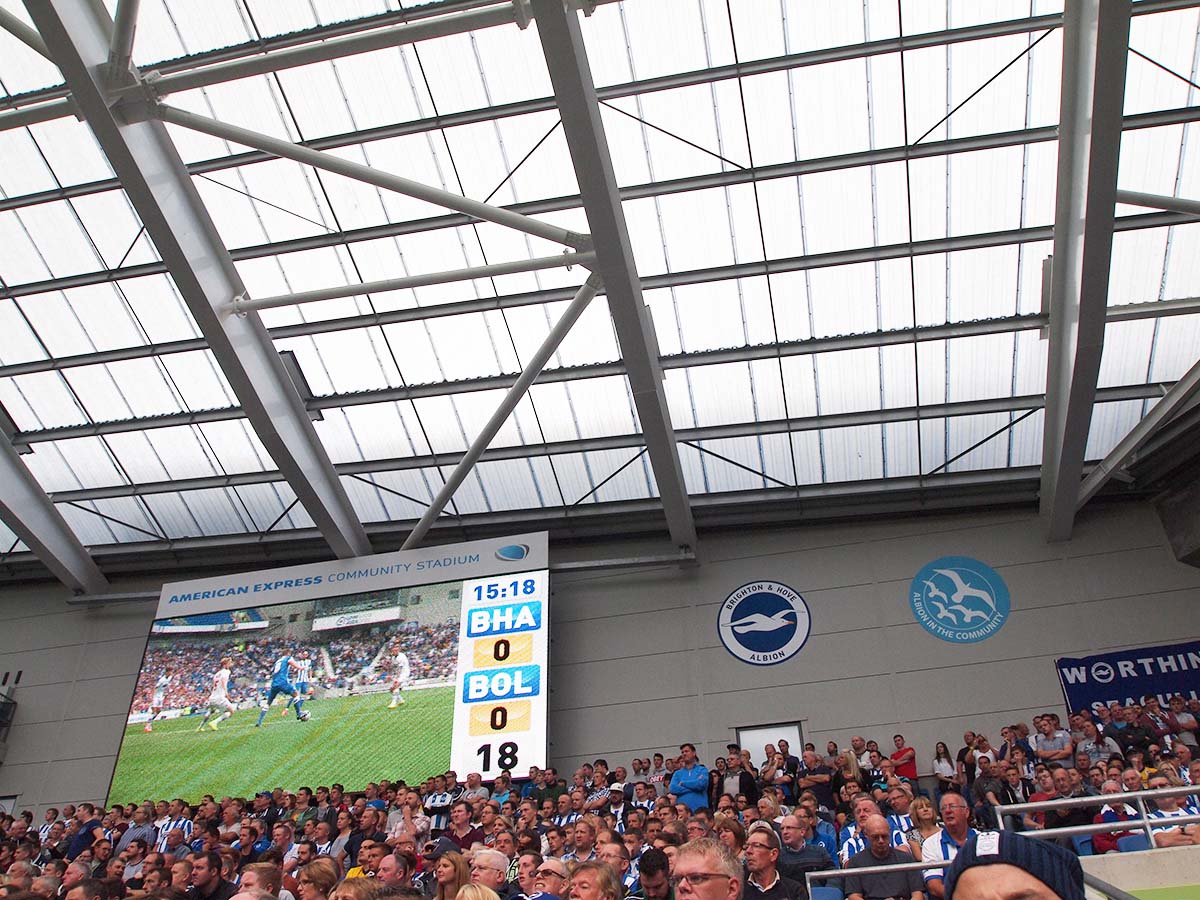
“The winning essence of football and business doesn’t change.”
FW: What is the charm of the great game for a business man such as yourself?
HI: If you look at the roles of professional footballers and that of company staff, there are the attackers who’s job it is to go out and score, the defenders who are there to prevent goals etc. Like business, there are various roles to be done. They are in a way the same as those in the marketing department, research and development, manufacturing, sales, logistics and finance. If one of those roles is lacking somewhere along the line, the business won’t function. It’s the same as if one of the players on the pitch, or a sub on the bench, or the manager, coach, or back room staff for that matter, out of all of these people, if they can’t build up a supportive relationship, they will lose the game. To be a winner on the pitch or in business requires the same process. If you don’t think about what it takes to win an order, or don’t work so that your rival company doesn’t win the order, this is the same as having to understand what it takes to win points on the pitch. And the key to this understanding is being able to work together, even if the going gets really tough, as long as you have support and people on your side, you’ll get the order, or the points on the pitch. If you don’t have this cooperation from those you are working with you won’t win. It is these points in common that the two have, out of many points, that are fascinating for me.
HI: Another element is the performance in business and in football, they have the same issues. The element of benchwork and that in a game, if the performance in a game dips and weakens, this is the same as when someone is not working well enough in business. And it is when the manager or coach notices this is happening that a similar kind of judgement is required. The work of the manager or coach in a club is swapping up players into different positions to produce the best performance in a game. This is the same as transferring workers to different roles and jobs within a company. The timing of the change in each situation, be it business or in football, requires the same ability by the managers and coaches. To wait and see what happens, and have the ability to act at the right time. For instance, if the job performance of someone doesn’t improve, further job shuffling is needed to be done by the manager. This type of judgement call is the same for changing a player during a game. If you notice in training two players that aren’t up to form, and then in the game you notice they aren’t performing well either, the manager has to pick the right timing to sub them out, and select the best players to replace them with.
Q2:経営者の視点で観るフットボールの魅力とは?
“フットボールもビジネスも、勝つことへの本質は変わらない”
「プロのフットボーラーを、ビジネスマンであるという視点で観ると、点を獲りにいくアタッカー、点を獲られないように守備をするディフェンダーなどそれぞれの仕事における役割があり、それはビジネスを行う企業における、マーケティング、研究開発、製造、営業、物流、経理であり、そこのどこが欠けてもビジネスが成立しないことと同じで、ピッチにいる選手と控えの選手の18人、それから監督、コーチ、スタッフの間でリレーションシップを築き助けあえていないと試合に負けます。」
「勝者になるプロセスというのは、フットボールもビジネスも同じだと思っています。なにがなんでも受注を勝ち取るという意識がいないと他社とのコンペティションには勝てないように、点を取りに行くためにそれぞれが役割を理解しながら連携し、しんどくても仲間を助け合うようでないと勝てないですね。そういった共通点が多いところを面白いと感じています。」
「ベンチワークもゲームの要素のひとつですが、試合の中でのパフォーマンスの低下に対して、いつどう対応するのかといった判断もビジネスに似ています。そこは監督やコーチの仕事になりますが、例えば、ポジションを変更するということも配置転換のようなもので、業績が上がらない部署や社員の働きについてどこまでそれを見守るのか、などの判断の仕方は同じだなと感じます。以前、パフォーマンスが下がっていた選手が2人いることに気づき、試合でもプレイがうまく出来ておらず観ていてとてももどかしく感じていたら、その時、既に監督がそのポジションにあたるサブの2人に準備をさせているのを見て、フットボールとビジネスはやっぱり似ているなと感じました。」
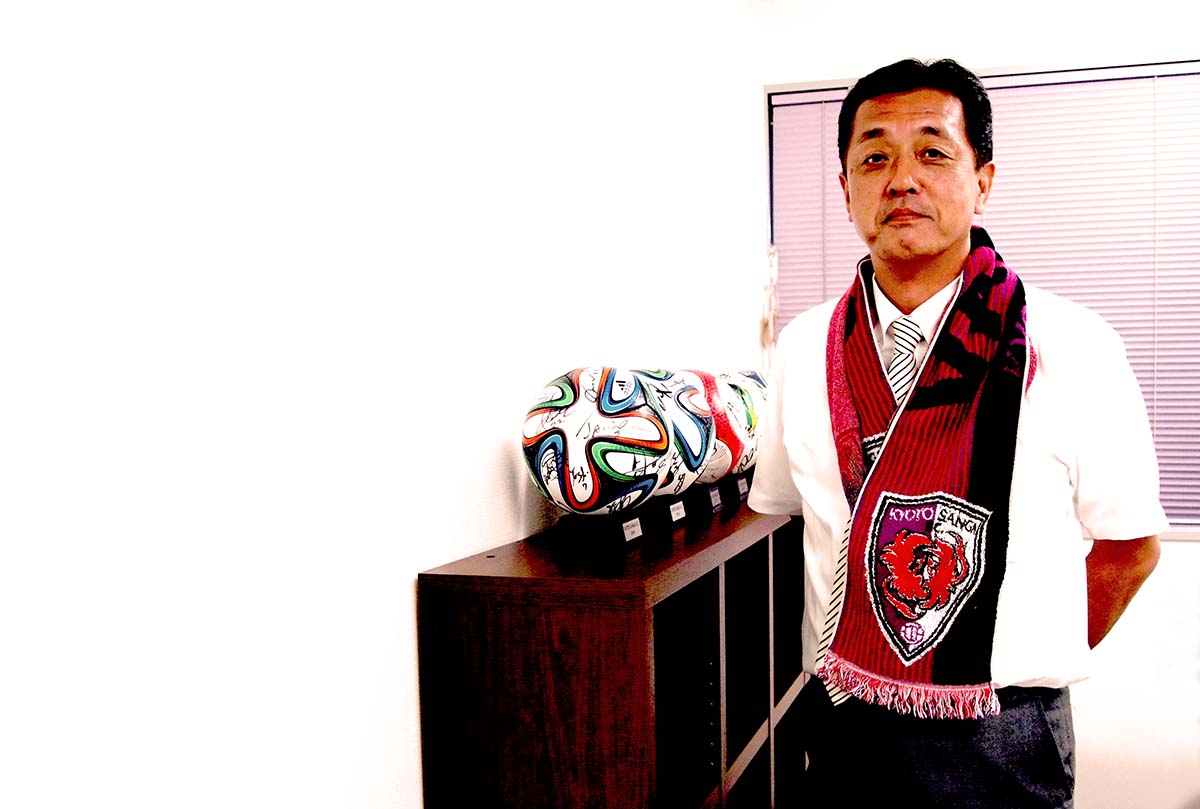
J League is, in its own right an ‘exciting football’ industry. However it remains quite a different form in comparison to its peers, especially in England where football and the stadiums exist as the symbol of the local community, in many places around the country. So for Japan to accumulate more regular spectators as well as new fans, better stadiums then are surely the easiest angle and way forward to bringing in people through the turnstiles. “Build a good stadium, good games will come.” A line reminiscent of the famous quote from ‘Field of dreams’, and spoken with true conviction by Mr Imai, who knows that the essence of the professional football industry is entertainment. However, in Japan, football has yet to reach this stage in some forms, particularly regarding stadiums, and faces several walls to overcome in the path to high quality entertainment football.
10th October 2014
Footy weekends Kyoto&Brighton
From Footy Weekends---
Jリーグのフットボールはエキサイティングではあるけれども、ローカルコミュニティの象徴としてフットボールスタジアムが存在するイギリスとは全く違う環境のこの日本で、フットボールを観てもらうためには、スタジアムそのものに、ビギナーファンを取り込むためのわかりやすい切り口が必要のようです。”いいスタジアムが出来ると、いい試合が生まれる”という今井社長の言葉は、まさにエンターテイメントとしてのプロフェッショナル・フットボールの本質であり、しかしながら、日本においてその実現を果たすには、まだまだ乗り越えなければいけない壁があるように感じました。
10th October 2014
Footy weekends Kyoto&Brighton
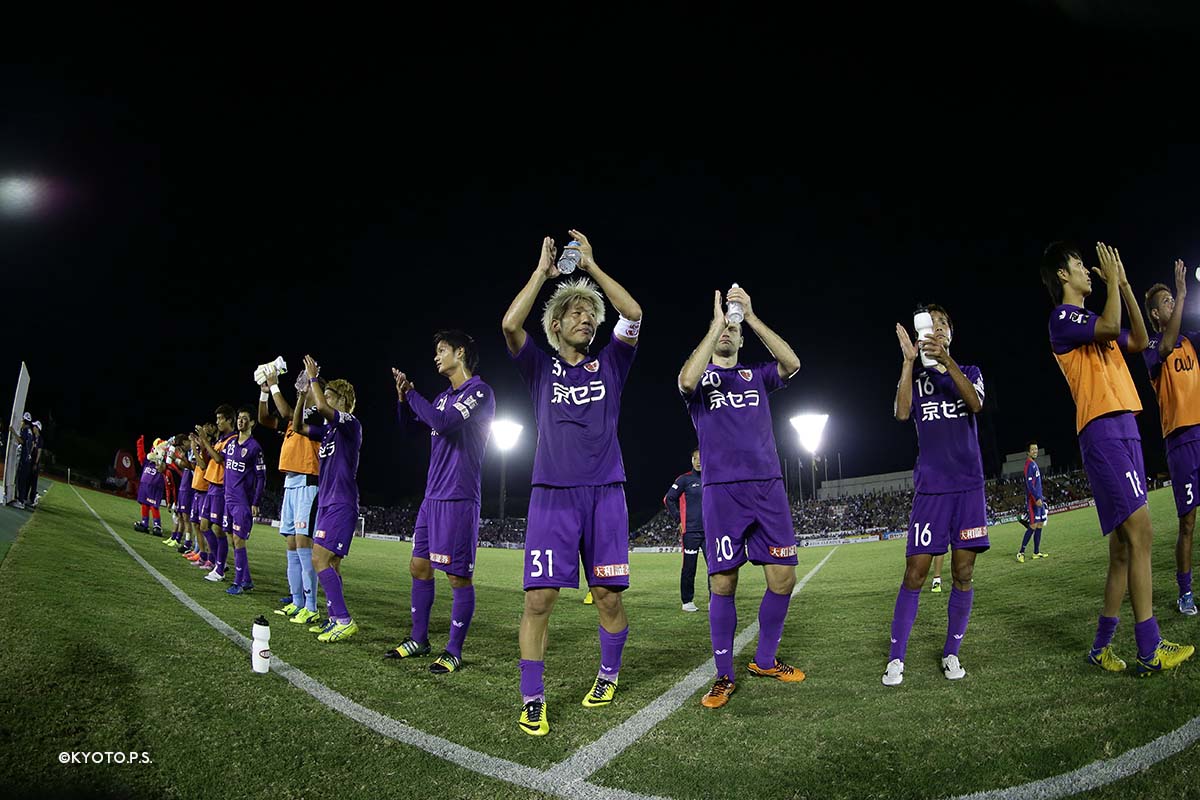
A special Interview
Hiroshi IMAI Kyoto SANGA F.C. President
My message to Sanga fans (To the episode 2)
スペシャルインタビュー 京都サンガF.C.社長 今井浩志氏(株式会社 京都パープルサンガ 代表取締役)
「京都サンガF.C.のファンの皆様に伝えたいこと」その2へ
http://footyweekends-jp.co.uk/watch/487

